#David Chevalier
Text
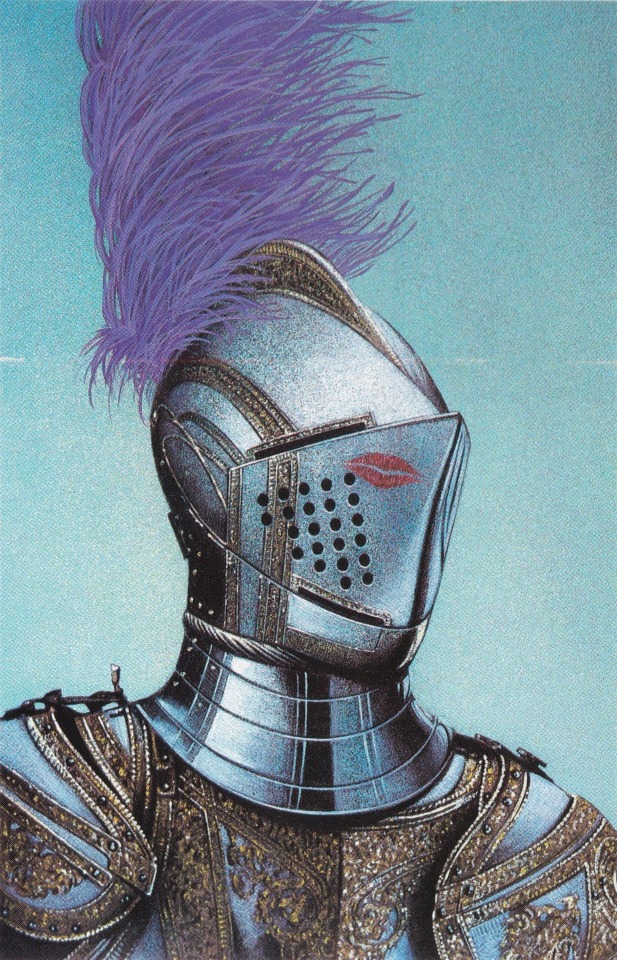
#knight#knights#art#illustration#david michael beck#david m beck#1984#helmet#armour#medieval#middle ages#kiss#lipstick#kisses#plumes#plume#chivalry#helmets#feather#feathers#history#europe#european#cavalier#chevalier#mediaeval
5K notes
·
View notes
Text
"Double Gnu Wan" [David Chevallier Curiosity (Yolk Music; 2022)] Por Pachi Tapiz. JazzX5 #547 [Minipodcast de jazz]
“Double Gnu Wan” [David Chevallier Curiosity (Yolk Music; 2022)] Por Pachi Tapiz. JazzX5 #547 [Minipodcast de jazz]
“Double Gnu Wan”
David Chevallier Curiosity (Yolk Music; 2022)
David Chevallier, Laurent Blondiau, Sébastien Boisseau, Christophe Lavergne
Tomajazz: © Pachi Tapiz, 2022
Escuchar David Chevallier Curiosity: “Double Gnu Wan”
En anteriores episodios de JazzX5 / HDO / LODLMA / Maltidos Jazztardos / Tomajazz Remembers /JazzX5 Centennial / Universos…

View On WordPress
#Christophe Lavergne#David Chevalier#JazzX5#Laurent Blondiau#Minipodcast de jazz#Pachi Tapiz#podcast de jazz#Sébastien Boisseau
0 notes
Text
soundtracksoundtracksoundtracksoundtr
okay let's not pretend i didn't go straight to this one: 0:33 onwards of the biggest decision - instant tears, brings me to my knees, yanking at my hair, howling at the moon
ok yes i have major feelings at the motif arrangement in not kind, its literally like hearing crowley's inner monologue to me it's so soft and vulnerable and i want to give him a squidge
i don't want to talk about fallen angel it hurts but fuck it im gonna, im such a whore for string swells and 1:17 onwards just does me in, the lilting and the rides and falls is just superb fuuuuuck
4:51 of catch the bullet!!! the little snare trill!!! gOD and then the stRINGS? then that brass ok no i can't talk about it
oh crowley and muriel is so gorgeous and serene i love it sm
love how hard he's smoking goes at like 0:33, it's nails, and then slam at 0:53? CHRIST it's so 'theme that got left in the car' i love it and it's perfect powerful crowley score yesyesyesyesye
monsieur azirophale [sic?] is so silly im giggling kicking my feet twirling my hair
okay but if there is anything that sums up like the ✨magic✨ of GO for me is the 0:00 - 0:16 of the candelabra it's so preeeeeetty
okay now i won't lie. this is the one i truly, truly wanted. my favourite scene in the whole mf show is the lift arrives/Going Up sequence, and the MUSIC hit me like a freight train when i was watching it, i was practically thrown back in my seat, like if i was feeling at all sleepy at 5am on premiere day the music in this scene woke me tf Up, the music in this bit would resurrect me from my grave it is That GOOD (the circle, just listen to all of it it's perfect) (ok actually i will say that the electricity noises in the show did add to the✨ambiance✨ but that's minor)
10/10 soundtrack god bless us all
#good omens#good omens soundtrack#david arnold is a fucking genius im in awe#arnold symphony orchestra tour when???#i went to a concert of zimmer vs williams and that was insane (even if they did butcher chevaliers a little bit but anyway)#id do a lot of things to see like an arnold vs maybe silvestri? or actually no maybe djawadi yessssss djawadi
146 notes
·
View notes
Text
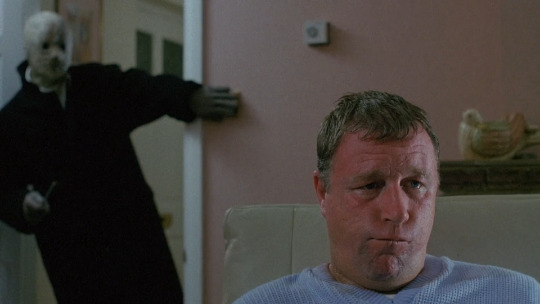
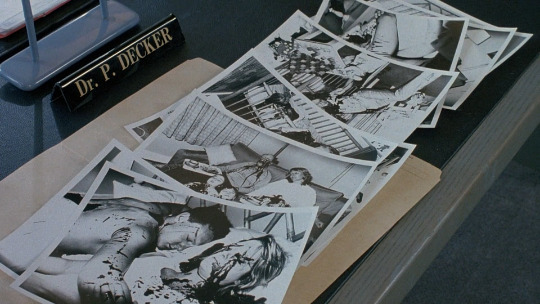
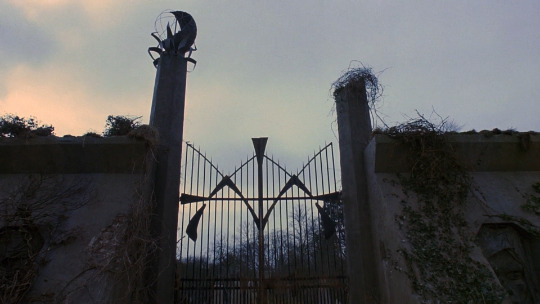
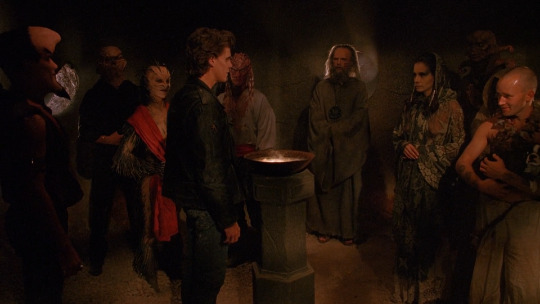
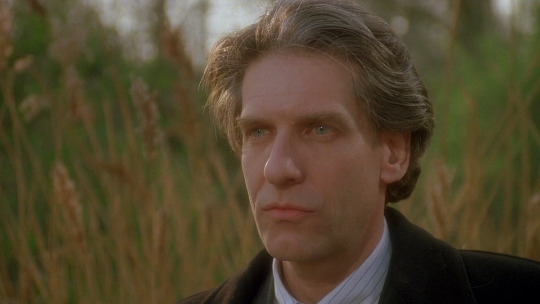
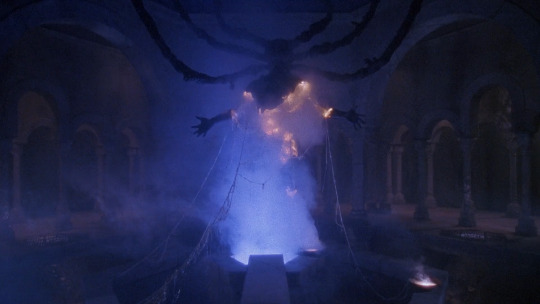
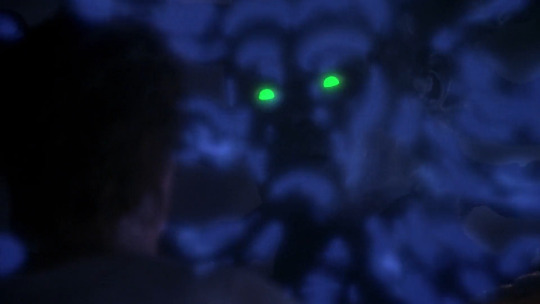
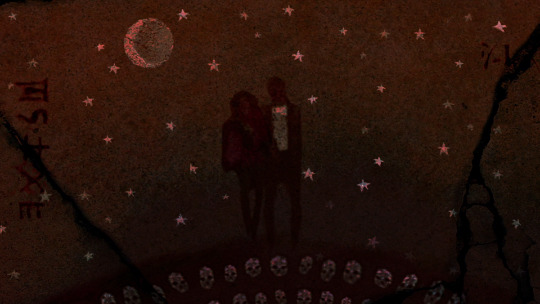
Nightbreed (1990)
#Horror#Nightbreed#Clive Barker#David Cronenberg#Craig Sheffer#Doug Bradley#Catherine Chevalier#Christine McCorkindale#Nicholas Vince#Screencaps#1990#90s
410 notes
·
View notes
Text
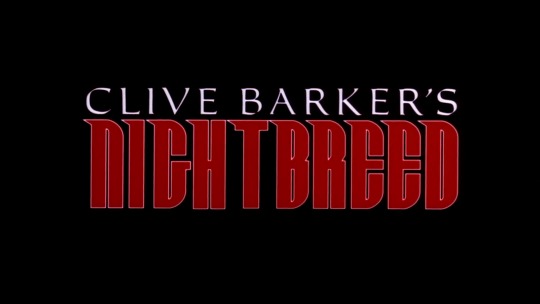

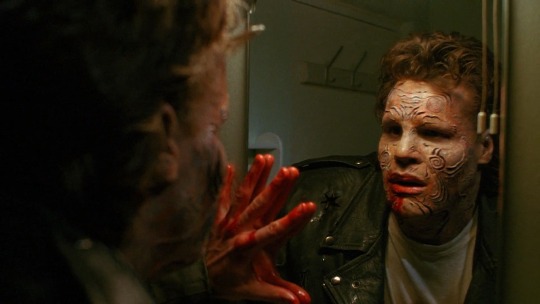
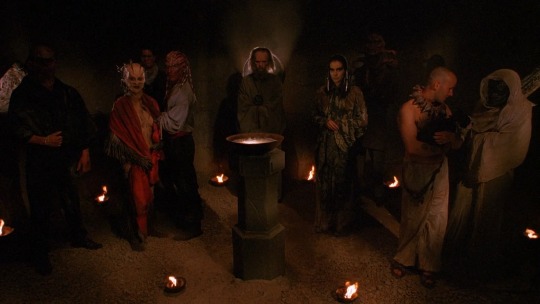


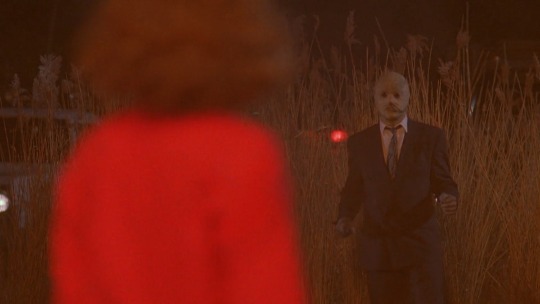
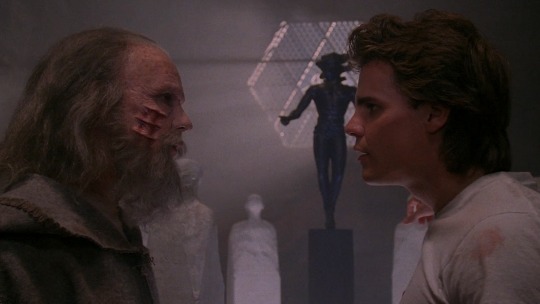

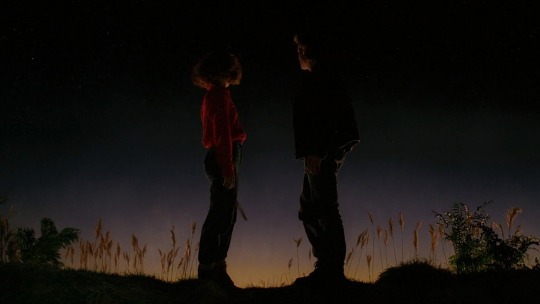
NIGHTBREED (1990)
Director - Clive Barker, Cinematography - Robin Vidgeon
"Everything is true. God's an Astronaut. Oz is Over the Rainbow, and Midian is where the monsters live... And you came to die."
#scenesandscreens#Christine McCorkindale#Tony Bluto#Bernard Henry#Nicholas Vince#Simon Bamford#Kim Robertson#Malcolm Smith#Oliver Parker#Debora Weston#doug bradley#Catherine Chevalier#Bob Sessions#hugh quarshie#Bradley Lavelle#Hugh Ross#Anne Bobby#david cronenberg#Charles Haid#clive barker#Robin Vidgeon#craig sheffer#nightbreed
215 notes
·
View notes
Text



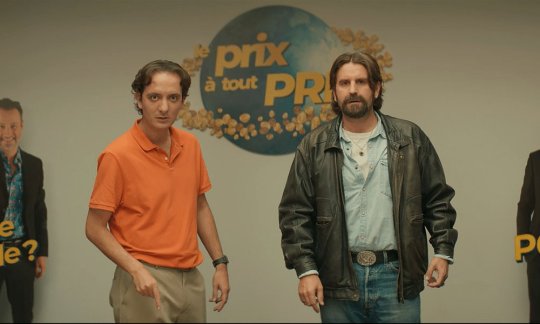
les deux toktok des vedettes (2022)
#my art#palmashow#les deux toktok#stéphane chevalier#daniel santini#le palmaship...#les vedettes#les vedettes 2022#simplement dan & steph#queerbaité par le palmashow depuis 2010 et vous 🤩#grégoire ludig#david marsais#french side of tumblr
27 notes
·
View notes
Text
bon allez, je vous donne en mille mes moments préférés de l’hommage 2024
#effectivement le costume de jean chevalier vaut des points (t’façon cet homme - très mimi au demeurant - a une gueule de muppet#noam morgensztern a toujours les meilleures citations ptdrrr#marina hands petite pitchoune ♥️#julien frison bichette tu vas me faire chialer ptn#ok bien ouej montenez#didier sandre ♥️#clément hervieu-léger est à ça 👌🏻 de chialer et honnêtement moi aussi#VARUPEEEENNNE PAS LE DROIT DE SORTIR UNE PHRASE COMME ÇA JE CHIALE MOI#gilles david ♥️#christian hecq et sa phrase signature mais toujours renouvelée#serge bagdassarian et tout le monde se marre parce que c’est sa phrase signature#CORBERY 🥲 on chiale ensemble#merci laurent stocker ça fait rire un peu ça fait du bien#génovèse……….pas le droit de sortir ça ptn je sanglote#et la petite dernière pour boucler la chose ♥️#comédie française
14 notes
·
View notes
Note
Do you like opera??
I don’t dislike opera, but it’s not something I’m particularly into. I watch/listen to stuff my friends (specifically, like, two people) recommend me, otherwise I prefer plays, ballet, & sometimes musicals.
#I read ABOUT operas more than I actually watch/listen to them#the david & jonathan one is a rare one where I read about it and immediately had to listen to it and then find a recording#shoutout to Philippe d'Orléans and the Chevalier de Lorraine for that#ask tag
13 notes
·
View notes
Text



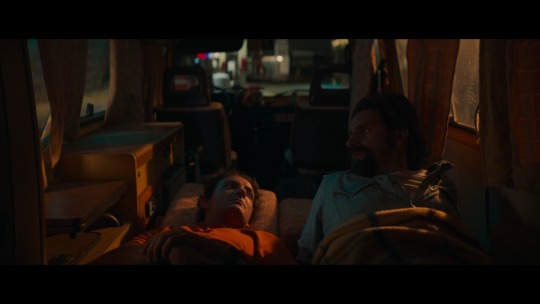
peut-être que j'y pense
(les vedettes - 2022)
#palmashow#les vedettes#les vedettes 2022#david marsais#grégoire ludig#stéphane chevalier#daniel santini#les deux toktok#mon empire romain à moi (la scène dans le combi)#simplement dan & steph
6 notes
·
View notes
Text

First time drawing Rose Tyler and I put her in a devil costume for Halloween.... though it is what she was wearing at the masquerade party in the Sword of the Chevalier audio story (which also had 10 singing off-camera... off-mic?)
Had some difficulty with D'Eon's dragoon costume since I couldn't remember if it was supposed to be French Dragoons or English and there's a large variety depending on the era, so I ended up picking the green and red Napoleonic uniform on aesthetic value.
#doctor who#tenth doctor#rose tyler#david tennant#tenrose#big finish#billie piper#chevalier d'eon#nvz my art#2022
30 notes
·
View notes
Text
'The one thing you need to know about Christopher Nolan’s “Oppenheimer” is that it moves incredibly fast and covers a lot of ground. For most of its three-hour runtime, the atomic bomb epic can feel as if you’re reading a dense biography about J. Robert Oppenheimer at three times the normal speed. With so many scientist characters orbiting Oppenheimer at light speed, you’d be forgiven for feeling a little lost at times.
To help watch “Oppenheimer” with a bit more clarity, it’s important to know the movie takes place during three time periods. One timeline is set in 1954 as the U.S. Atomic Energy Commission (AEC) holds a security hearing to investigate whether or not Oppenheimer (Cillian Murphy) is a Soviet spy. The hearing prompts the film to flash back to the events of Oppenheimer’s life, from his university days to his role in creating the atomic bomb. These portions of the film, shot in color, make up the bulk of “Oppenheimer’s” three-hour runtime.
A third storyline is shot in black and white and takes place in 1959 as Lewis Strauss (Robert Downey Jr.), the former chairman of the U.S. Atomic Energy Commission, is seeking to become U.S. Secretary of Commerce under President Dwight D. Eisenhower. Strauss finds himself at the center of his own U.S. Senate confirmation hearing, which threatens to expose his involvement in the events of the 1954 timeline.
“Oppenheimer” creates its own kind of fission by constantly jumping between these time periods, as characters and events twist depending on the perspective. Whether you want to go into “Oppenheimer” with a bit more knowledge or you’ve just seen it and are wondering who everybody was (it can be hard to keep track given the film’s relentless pace), below is your guide to the film’s cast and the real historical figures they play.
Cillian Murphy as J. Robert Oppenheimer
Cillian Murphy stars as theoretical physicist J Robert Oppenheimer, known as the “father of the atomic bomb.” Oppenheimer was named the director of the Manhattan Project’s Los Alamos Laboratory in New Mexico. It’s here where Oppenheimer and his team developed the first atomic bomb for World War II. The bomb was detonated on July 16, 1945 in what is referred to as the Trinity test, with Oppenheimer present during the demonstration.
For Murphy, “Oppenheimer” marks his first time leading a Nolan movie in over 20 years. The two worked together on five previous features: Three Batman films, “Inception” and “Dunkirk.” Murphy revealed last year that in prepping to play Oppenheimer he skipped over all the mechanics of what makes an atom bomb and instead focused on the man himself.
“[I prepped by doing] an awful lot of reading,” Murphy recently told The Guardian. “I’m interested in the man and what [inventing the atomic bomb] does to the individual. The mechanics of it, that’s not really for me — I don’t have the intellectual capability to understand them, but these contradictory characters are fascinating.”
Emily Blunt as Katherine "Kitty" Oppenheimer
Emily Blunt stars as Katherine “Kitty” Oppenheimer, who married J Robert Oppenheimer in 1940. Born in Germany, Kitty was a botanist and biologist whose early life was associated with the Communist party after she became the common-law wife of party member Joseph Dallet Jr. She met Oppenheimer in 1939 at the California Institute of Technology, where he was a part time physics teacher and she was assisting physicist Charles Lauritsen. They began an affair while she was still married to medical doctor Richard Stewart Harrison. Kitty left Harrison and married Oppenheimer in November 1940 after she became pregnant with their first child, Peter. The couple moved to Los Alamos in March 1943 so that Oppenheimer could work full time on his Manhattan Project duties. They had their second child there. The isolation of living in Los Alamos contributed to Kitty’s alcoholism.
Matt Damon as Leslie Groves
Matt Damon plays Leslie Groves, who was the director of the Manhattan Project. The group’s mission was to develop the first atomic bomb during World War II. Groves had previously overseen the construction of the Pentagon while serving as an officer in the United States Army Corps of Engineers. As director of the Manhattan Project, Groves approved Los Alamos, New Mexico as one of several testing sites for the development of the atomic bomb. He personally recruited Oppenheimer to lead the charge at Los Alamos, a divisive choice at the time as Oppenheimer lacked a Nobel Prize and administrative leadership experience. Groves was on site for the detonation of the first atomic bomb on July 16, 1945.
Robert Downey Jr. as Lewis Strauss
Robert Downey Jr. plays Lewis Strauss, who served two terms on the U.S. Atomic Energy Commission (AEC). Strauss was the organization’s chairman during his second term. He became an enemy of Oppenheimer’s due to the AEC’s controversial hearings in April 1954 that led to Oppenheimer’s security clearance being revoked. The hearings came as a result of Strauss becoming convinced that Oppenheimer was a Soviet spy. Strauss became convinced of the fact after Oppenheimer’s claim that the Soviets were four years behind the U.S. in nuclear weapons development got challenged. Strauss eventually asked FBI director J. Edgar Hoover to run surveillance on Oppenheimer, and the organization ran a wiretapping of Oppenheimer’s phones. Illegally-obtained conversations Oppenheimer had over the phone with lawyers and more were used by Strauss to stack the hearing’s odds against Oppenheimer.
Florence Pugh as Jean Tatlock
Florence Pugh stars as Jean Tatlock, who had a relationship with Oppenheimer before and during his marriage to Katherine “Kitty” Oppenheimer. The two met at the University of California, Berkeley, where Tatlock was a graduate student and Oppenheimer was a physics professor. Tatlock was a member of the American Communist Party. The film shows the two first meeting at a members gathering that Oppenheimer is brought to by his brother, Frank, who also had ties to the American Community Party. Tatlock’s relationship with Oppenheimer was cited during Lewis Strauss’ AEC hearing because of her Communist ties. Tatlock died by suicide at the age of 29 after struggling with clinical depression.
Josh Hartnett as Ernest Lawrence
Ernest Lawrence, played by Josh Hartnett, was a nuclear physicist from Canton, South Dakota who was awarded the Nobel Prize in Physics in 1939 for his invention of the cyclotron, a particle accelerator that was the first cyclical machine of its kind. When audiences first meet Lawrence in the film, he’s in the process of building that machine at the University of California, Berkeley. It’s here where Lawrence and Oppenheimer became close friends. Lawrence is credited with recommending to Leslie Groves that Oppenheimer be named the director of the Manhattan Project’s Los Alamos research site. Lawrence went on to assist the Manhattan project with uranium-isotope separation.
Casey Affleck as Boris Pash
Boris Pash, played by “Manchester by the Sea” Oscar winner Casey Affleck, was a military intelligence officer in the United States Army. During World War II, Pash was tasked with investigating potential Soviet spy activity within the University of California, Berkley’s radiation laboratory. Oppenheimer was included among those interrogated by Pash, who determined that Oppenheimer was not a Soviet spy but may be connected with the Communist party given his previous relationships (see Jean Tatlock above). Pash suggested Oppenheimer be accompanied by counter-intelligence agents while on site in Los Alamos.
Rami Malek as David Hill
David L. Hill was an associate experimental physicist at the University of Chicago’s Met Lab during the Manhattan Project. Acording to the Atomic Heritage Foundation: “On December 2, 1942, he was one of the 49 scientists who witnessed the world’s first nuclear reactor to go critical.” Hill was also one of 70 scientists and workers to sign the Szilard Petition, a document written by Leo Szilard petitioning President Truman to avoid dropping the atomic bombs on Japan. In the film, Hill pops up in the 1959 timeline to disrupt Lewis Strauss’ bid for U.S. Secretary of Commerce by revealing the devious tactics Strauss used during the AEC hearing that stripped Oppenheimer of his security clearance.
Kenneth Branagh as Niels Bohr
Niels Bohr, played by Christopher Nolan regular Kenneth Branagh, was a physicist from Copenhagen, Denmark who won the Nobel Peace Prize in Physics in 1922 for his work on quantum theory and atomic structure. He is famous for developing the Bohr model of the atom. Whereas the U.S. had the Manhattan Project to develop nuclear weapons, Britain had the Tube Alloys. Bohr was a member of this group and made several visits to the Manhattan Project’s Los Alamos site during the atomic bomb’s design process. He helped Oppenheimer with work on modulated neutron initiators. In the film, Bohr is one of Oppenheimer’s physicist heroes and he attends one of Bohr’s lectures in college.
Benny Safdie as Edward Teller
“Uncut Gems” and “Good Times” co-director Benny Safdie stars as Edward Teller, a theoretical physicist from Budapest who is known as the “father of the hydrogen bomb.” He was included in Oppenheimer’s 1942 summer planning seminar for the Manhattan Project at the University of California, Berkeley, and he moved to the Manahattan Project’s Los Alamos site in 1943 and joined the Theoretical Division, which was overseen by Hans Bethe (played by Gustaf Skarsgård in the movie). As part of the Manhattan Project, Oppenheimer tasked Teller with researching uranium hydride and the mathematics behind a nuclear weapon implosion. He was one of the few scientists on location to watch the detonation of the first atomic bomb during the Trinity test.
Gary Oldman as President Truman
Harry S. Truman, the 33rd president of the United States, is played in “Oppenheimer” by Oscar winner Gary Oldman, whom Nolan worked with on the “Dark Knight” trilogy. The Manhattan Project started in 1942 under Franklin D. Roosevelt’s presidency. Truman served as his vice president and was notoriously not told about the Manhattan Project until he became president himself. As president, Truman authorized the first and only use of nuclear weapons in war against Hiroshima and Nagasaki in Japan. The bombs were dropped on August 6 and August 9, 1945. In the film, Truman assures Oppenheimer that the world will only see the president as a villain of history for dropping the bombs and not their maker himself.
David Krumholtz as Isidor Isaac Rabi
“Harold & Kumar” and “The Santa Clause” actor David Krumholtz stars as Isidor Isaac Rabi, an American physicist who won the 1944 Nobel Prize in Physics for his discovery of nuclear magnetic resonance. His work on radar at the Massachusetts Institute of Technology’s Radiation Laboratory led him to be a consultant on the Manhattan Project. Rabi was called to testify at the AEC security hearing in 1954 and strongly defended Oppenheimer. In the film, Rabi is heard passionately telling the AEC board that Oppenheimer loved and defended his country through his actions in the Manhattan Project.
Matthew Modine as Vannevar Bush
“Stranger Things” star Matthew Modine reunites with Christopher Nolan after “The Dark Knight Rises” to play Vannevar Bush in “Oppenheimer.” Bush was an American engineer who headed the U.S. Office of Scientific Research and Development during World War II. He helped sell the U.S. government on creating the Manhattan Project. Later during World War II, he joined the Interim Committee that advised president Harry S. Truman on nuclear weapons. Bush was present at the Trinity test and watched the detonation of the first atomic bomb.
David Dastmalchian as William L. Borden
Nolan regular David Dastmalchian plays William L. Borden, who served as the executive director of the United States Congress Joint Committee on Atomic Energy from 1949 to 1953. He is best known for writing a letter to FBI director J. Edgar Hoover that accused Oppenheimer of being a Soviet spy, which then led to the Atomic Energy Commission’s security hearing in 1954. The film positions Borden as a puppet of Lewis Strauss, as Strauss wanted to keep his hands dry in Oppenheimer’s public downfall. Borden went on to testify against Oppenheimer during the hearings.
Michael Angarano as Robert Serber
Michael Angarano stars as Robert Serber, an American physicist who contributed to the Manhattan Project. He previously had worked for Oppenheimer at the University of California, Berkeley and the California Institute of Technology before he was recruited to join the Manhattan Project in 1941. Serber was also involved with a section of the Manhattan Project known as Project Alberta, which aided in the delivery of nuclear weapons during the atomic bombings of Hiroshima and Nagasaki.
Jack Quaid as Richard Feynman
“The Boys” star Jack Quaid plays Richard Feynman, a theoretical physicist from New York City who shared the 1965 Nobel Prize in Physics with Julian Schwinger and Shin’ichirō Tomonaga for work on quantum physics. Feynman joined the Manhattan Project’s Los Alamos operation and was made group leader of Hans Bethe’s Theoretical Division, where he developed the Bethe–Feynman formula for calculating the yield of a fission bomb.
Josh Peck as Kenneth Bainbridge
Former “Drake and Josh” Nickelodeon star Josh Peck plays Kenneth Bainbridge, an American physicist known for his work on cyclotron research at Harvard University. Oppenheimer appointed him the director of the Trinity test. The demonstration was the first time an atomic bomb was detonated and took place July 16, 1945. In the film, it is Bainbridge who acts on Oppenheimer’s order to press the button to detonate the bomb. He allegedly told Oppenheimer after the atomic bomb’s first detonation, “Now we are all sons of bitches.” After witnessing the Trinity test, Bainbridge turned against the testing of nuclear weapons.
Olivia Thirlby as Lilli Hornig
Olivia Thirlby, best known for performances in “Juno” and “Dredd 3D,” stars as Lilli Hornig, a feminist activist and scientist who joined the Manhattan Project efforts. Lilli and her husband, chemist and explosives expert Bruce Hornig, moved to Los Alamos together to work for Oppenheimer. She became a staff scientist for the Manhattan Project.
Dane DeHaan as Kenneth Nichols
Dane DeHaan stars as Kenneth Nichols, a United States Army office from Cleveland, Ohio who worked on the Manhattan Project as a civil engineer. He later oversaw the production of plutonium as the head of the Manhattan Engineer District. Nichols eventually joined the Atomic Energy Commission in 1953 as a general manager and was involved in the security hearing against Oppenheimer. He believed Oppenheimer was a Communist and ruled in favor of stripping Oppenheimer of his AEC security clearance. The film positions Nichols as a mole who encouraged William L. Borden to report Oppenheimer’s alleged Soviet ties to the FBI.
Jason Clarke as Roger Robb
Jason Clarke plays Roger Robb, a United States circuit judge who joined the Atomic Energy Commission as special counsel during the security hearing against Oppenheimer in 1954. The hearing lasted four weeks as Robb and a panel of AEC members interrogated Oppenheimer on the grounds that he was a Soviet spy. Robb was convinced Oppenheimer was a traitor and used dramatic interrogation methods during the hearing to make Oppenheimer appear as guilty as possible. Robb was known for his ruthless tactics. The board voted to strip Oppenheimer of his security clearance.
James D'Arcy as Patrick Blackett
“Cloud Atlas” star James D’Arcy plays Patrick Blackett, an experimental physicist who won the 1948 Nobel Prize in Physics. He is notable in the science community for being the first person to prove that radioactivity can lead to the nuclear transmutation of one chemical element to another. Oppenheimer was one of his most notable students. Early in the film, it’s implied that Blackett was a harsh teacher who did not favor Oppenheimer. He tells Oppenheimer to stay behind while the class attends a lecture by Niels Bohr. A mentally unstable Oppenheimer injects cyanide into an apple on Blackett’s desk. Oppenheimer ultimately gets rid of the apple before Blackett can eat it.
Tony Goldwyn as Gordon Gray
Tony Goldwyn goes from playing the president on ABC’s “Scandal” to starring as Gordon Gray in “Oppenheimer.” Gray was an American attorney and national security government official during Harry Truman and Dwight Eisenhower’s presidential administrations. He was one of the leading members on the AEC committee during the security hearing against Oppenheimer. The film implies that Gray was against Oppenheimer from the start. Convinced Oppenheimer was a Soviet spy, Gray worked with Roger Robb to ensure the outcome of the AEC hearing was not in Oppenheimer’s favor.
Tom Conti as Albert Einstein
Albert Einstein won the 1921 Nobel Prize in Physics and is regarded as the most influential theoretical physicist in history. He pops up throughout “Oppenheimer” as he was friendly with the title character. In real life, Einstein did not work on the Manhattan Project. However, he did join forces with colleagues such as Leó Szilárd, Edward Teller and Eugene Wigner to worn the U.S. government that Germany would win an atomic bomb race if the U.S. did not start getting plans together to create such a weapon. The group wrote a letter to President Roosevelt, which is credited with pushing the U.S. towards the creation of the Manhattan Project.
Alex Wolff as Luis Walter Alvarez
“Hereditary” star Alex Wolff plays Luis Walter Alvarez, who won the 1968 Nobel Prize in Physics for his work on particle physics used in the hydrogen bubble chamber. He was a friend and close colleague of Ernest Lawrence (Josh Hartnett, see above) in the research labs at the University of California, Berkeley. It’s here where Lawrence created the cyclotron, which Alvarez used to produce and study tritium. In the film, Alvarez is with Lawrence and Oppenheimer when they get the news that an atom has been split open for the first time. In real life, Alvarez traveled to Los Alamos and worked on the Manhattan Project.
Dylan Arnold as Frank Oppenheimer
Dylan Arnold stars as Oppenheimer’s brother, Frank. A particle physicist in his own right, Frank conducted research on behalf of the Manhattan Project and was called to Los Alamos by his brother to help prepare the layout and designs for the Trinity test. Frank is most important to Oppenheimer’s story because he was a member of the American Communist Party and invited his brother to attend party gatherings before the Manhattan Project was founded. Oppenheimer’s ties to his brother and more party members put him under scrutiny during the AEC security hearing.
Jefferson Hall as Haakon Chevalier
Haakon Chevalier, played by “Game of Thrones” actor Jefferson Hall, was a French professor at the University of California, Berkeley who became friends with Oppenheimer in 1937. In the film, Oppenheimer befriends Chevalier at a Communist party. The two went on to create the university’s teachers’ union, which angered some of Oppenheimer’s scientist colleagues as the union threw benefits in support of leftist causes. Their friendship was one of the defining parts of the AEC security hearing, as Chevalier told Oppenheimer about Soviet attempts to infiltrate the Manhattan Project. Oppenheimer belatedly reported the information as to protect Chevalier’s identity, which the AEC hearing committee used in favor of stripping Oppenheimer of his security clearance.
Matthias Schweighöfer as Werner Heisenberg
Matthias Schweighöfer, best known for his role in Zack Snyder’s “Army of the Dead” franchise, appears briefly as Werner Heisenberg, the German theoretical physicist who won the 1932 Nobel Prize in Physics for the creation of quantum mechanics. Oppenheimer idolizes Heisenberg in the film and even has a brief visit with him before World War II begins. Heisenberg was not involved in the Manhattan Project and instead worked on Germany’s nuclear weapons program during the war. Knowing how brilliant Heisenberg was and how his genius could aid in Germany’s creation of atomic weapons is part of the reason Oppenheimer needed to move so quickly with the Manhattan Project in Los Alamos.'
#Christopher Nolan#Oppenheimer#Cillian Murphy#Emily Blunt#Kitty#Robert Downey Jr.#Lewis Strauss#Matt Damon#Leslie Groves#Rami Malek#David Hill#Niels Bohr#Kenneth Branagh#Matthias Schweighofer#Werner Heisenberg#Dylan Arnold#Frank Oppenheimer#Jefferson Hall#Haakon Chevalier#Alex Wolff#Luis Walter Alvarez#Tom Conti#Albert Einstein#Olivia Thirlby#Lilli Hornig#James D'Arcy#Patrick Blackett#Tony Goldwyn#Gordon Gray#Jason Clarke
6 notes
·
View notes
Text
Rookie-Critic's Film Review Weekend Wrap-Up - Week of 4/24-4/30/2023


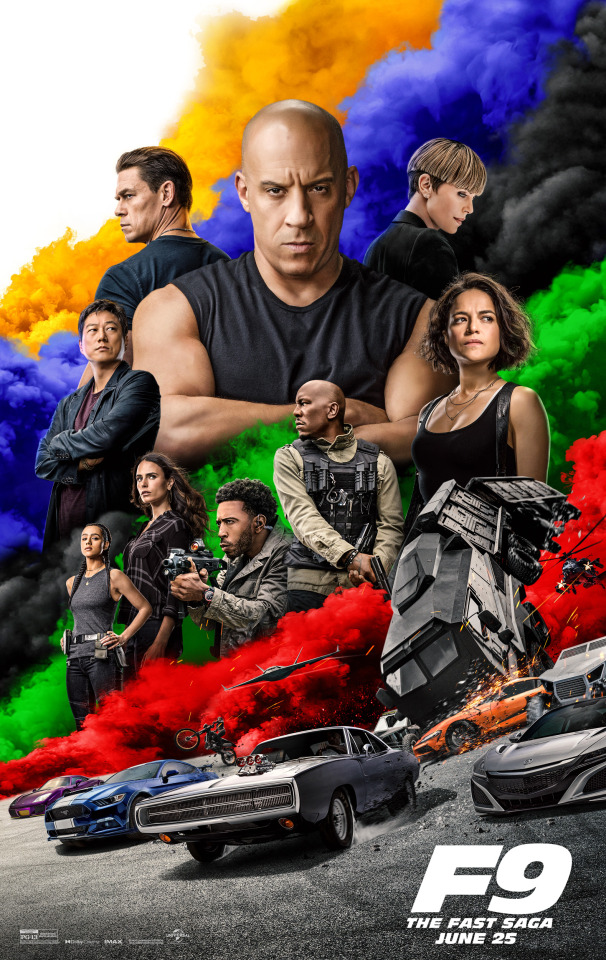
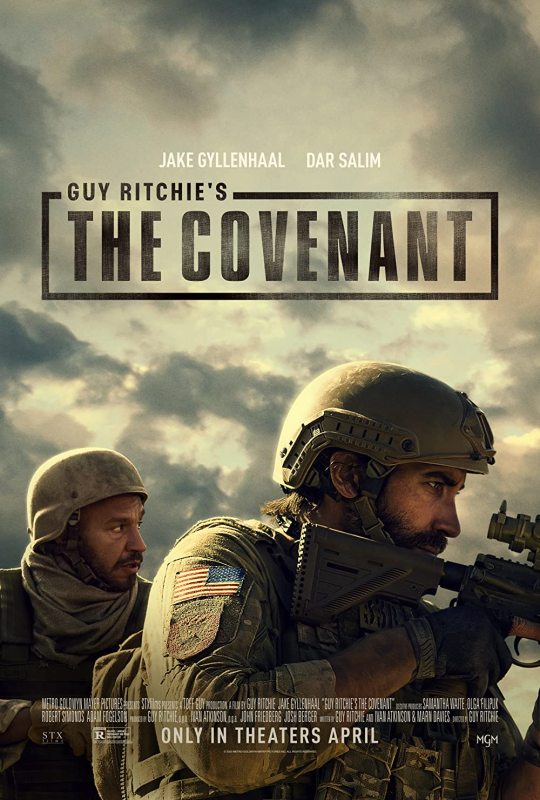
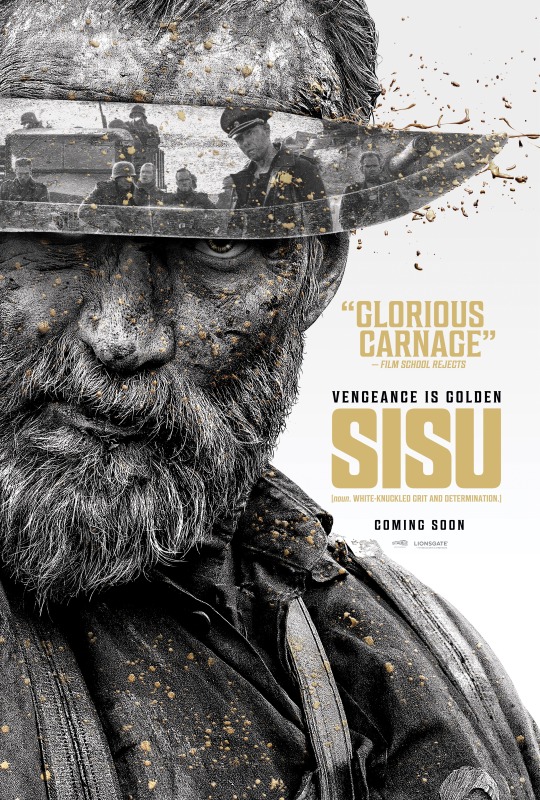


Fast & Furious Presents: Hobbs & Shaw (2019, dir. David Leitch)
This was a good off-shoot for the F&F series. The Rock & Jason Statham feel comfortable as the titular duo and have excellent on-screen chemistry, and the action feels clean and exciting, which is no surprise considering the film was directed by John Wick-veteran David Leitch, who fits the franchise like a glove. I really enjoyed all of the climactic fight scenes with Hobbs' family in Samoa. Honestly, the more Cliff Curtis can be in major feature films, the better. Idris Elba and Vanessa Kirby also make for great additions to the growing franchise. It never really blew my mind like some of the mainline Fast films have, but I don't think it was really trying to. Sometimes a movie is just good, dumb, clean fun, and that's perfectly alright with me. I just hate that this film (along with a multitude of other behind-the-scenes reasons) means that we probably won't be seeing Luke Hobbs in any of the remaining Fast movies.
Score: 7/10
Currently available to rent/purchase on digital (iTunes, Amazon, Vudu, etc.) and on 4K, Blu-ray & DVD through Universal Studios.
F9: The Fast Saga (2021, dir. Justin Lin)
After the wholly disappointing and, frankly, upsetting misstep that was The Fate of the Furious, I was curious to see if F9 would continue the downward trend, or if it would step its game up to bring some of the franchise's former glory back. When in doubt, trust in Justin Lin, who comes swooping back into the franchise for the first time since Fast & Furious 6 to save the day, with fan favorite character Han Lue in tow. This is biggest, wildest fast film yet, and I mean that as a compliment. That's not to say that it's the best (that honor is still held by Fast Five), but it does return a lot of the wonder and sincerity that Five, Six, and (to a lesser extent) Seven had. Not to mention that it is the first film in the franchise to incorporate Sean, Twinkie, and Earl from Tokyo Drift into the family in a major way since Tokyo Drift (if you don't count a tiny cameo from Lucas Black's Sean in Furious 7). Nothing about F9 feels as baseline or low-effort as the stuff in Fate did. Even the introduction of a mysterious third Toretto sibling that, for some reason, we hadn't heard about for the past eight films feels out of place or shoehorned in. Needless to say, where Fate of the Furious had me wondering if the franchise was receding in quality, F9 has me just as pumped to go see Fast X in May as I was after watching Fast Five.
Score: 8/10
Currently streaming on HBO Max.
Guy Ritchie's The Covenant (2023, dir. Guy Ritchie)
I went into this with a lot of apprehension. I was not a huge fan of the last Guy Ritchie film that tried to take a more serious approach to its tone (2021's Wrath of Man). It had a lot of grandstanding machismo bullshit that I hate to see in modern filmmaking. However, Ritchie really surprised me with The Covenant. He has Jake Gyllenhaal acting at the top of his game here with an equally impressive turn from Dar Salim as Ahmed the interpreter. While the story is fiction, it highlights a huge problem in the aftermath of the War on Terror: thousands of Afghani interpreters were hired by the U.S. military and promised special immigration visas for their service; a promise that turned out to be hollow. It sends its message without grandstanding and is critical of the U.S. military without putting itself on a soapbox. The film does tend to get overly self-indulgent during big sweeping climactic scenes and in certain emotional ones, as well. It's the one thing about the film that feels out of place, but even in spite of that, The Covenant is an excellent film and proof that Ritchie is capable of making a more serious-minded, message-oriented film than the humorous heist or caper films he's known for.
Score: 8/10
Currently only in theaters.
Chevalier (2023, dir. Stephen Williams)
I'll just say up front that my bias might show a little in my scoring of this one. I have never been the biggest fan of 16-1800's period pieces. I'm not sure what it is, but something about them has just never gelled with me. That being said, there's nothing really wrong with Chevalier. In fact, it is, in my opinion, much better than the average film of this sensibility. The acting is fantastic and it sheds light on an oft-overlook but quintessentially influential figure in both classical music and the French revolution. The music is a huge plus in the film's favor, of course, and the costumes are, as is the case with most film's set in this era, masterfully crafted. I think my biggest qualm with the film is that it stops right as the French revolution is getting started and then tells the audience that Chevalier went on to be a great leader during the Revolution. Maybe it's just me, but I think that sounds interesting enough to make it's own film about. This almost makes me wonder (and I don't ever really feel this way about films) if this would have been better suited as an 6-8 episode miniseries as opposed to a film. We still could have focused a 2-3 episodes on Chevalier's childhood and young adulthood in France's pre-Revolution music scene, but then dedicated an entire half of the show to his accomplishments during the Revolution. Regardless, I don't want that to take away from the fact the Chevalier was quite good, and definitely worth the ticket price. I just think more could have been done with the wealth of untold history that exists within the lifetime of this figure.
Score: 7/10
Currently only in theaters.
Polite Society (2023, dir. Nida Manzoor)
This movie absolutely ruled. It gave me all of the frenetic energy of the best Edgar Wright films while also giving me the genre-bending and jaw-dropping off-the-wall attitude of something like Everything, Everywhere, All at Once. This was a film that wasn't afraid to go for it in every way, shape, and form. From campy-but-well-choreographed fight sequences, to plot twist that twist so hard they'll make your head spin, to an unabashed approach to a female-empowerment narrative. Not to mention a story that is very uniquely Indian that touches on the nature of arranged marriages and classicism. Polite Society had everything that I look for in a film, and is a very early contender for the best of 2023 list. I'll save some of my more in-depth thoughts on stuff like the acting, writing, and cinematography for this week's full-length, but just know that if anything I've mentioned above sounds even remotely interesting, make this a priority watch (I don't want to say definitively that this is the best of the weekend's new movies because I haven't seen Are You There, God? It's Me, Margaret yet, and I hear that is pretty amazing, as well).
Score: 10/10
Currently only in theaters.
A Good Man (2014, dir. Keoni Waxman)
Yikes. Just... yikes. Friday movie nights with my college friends can get pretty wild sometimes. I've never seen a Steven Seagal film before, and maybe this wasn't the best one to start with (or, inversely, maybe it's the best one to start with). Seagal is clearly past his prime here (or, again, maybe in his prime, depending on your perspective), and looks like he's constantly on the verge of passing out. His words come out slurred and mumbled like he's on his deathbed, and his "action" in the film is cut around so heavily you really never see him actually do anything. The story is non-existent and the writing contains some of the most unintentionally hilarious one-liners I have ever heard in my entire life (I'm partial to the one where Seagal utters the baffling sentence "Well, I'm sorry to hear that, because now I'll snatch every motherfucker birthday." No, there's no typo there, that is verbatim what he says. My meme review is that this is great. Real "The Room" caliber stuff, here. My actual review is that obviously Seagal is a lunatic that is just self-funding whatever production he can fart out in an afternoon at this point. Honestly, if you want some quality takes on this, visit the Letterbox'd page.
Score: 1/10
Currently streaming for free with ads on Redbox.
Tzi Ma should be above stuff like this.
Sisu (2023, dir. Jalmari Helander)
I really wanted to love Sisu. I'm as much a fan of mindless action movies as the next guy, but the truth is I thought it was just ok. It delivers on exactly what it promised everyone in the trailers, one-man army kills the crap out of some Nazis for 91 minutes, and there's absolutely nothing wrong with that. There are a handful of really fun set pieces and lots of entertaining gore for fans of that kind of thing, but it just felt incredibly hollow. There are no characters in Sisu, only templates of archetypes that things happen to. No one learns anything, there's no journey to be had, merely an avatar quickly making his way through bodies to get to a destination. I'm not implying that every single movie needs to have some grand, elaborate story with deep and complex characters and rich subtext or anything like that, but I would have liked at least some substance to this. There are still things to enjoy in Sisu, and from what I've read I'm a slight outlier in not thinking this is incredible, but it just didn't connect with me. However, don't let that stop you from seeing this in the theater. The cinematography and style alone are worth the big screen experience.
Score: 6/10
Currently only in theaters.
#Weekend Wrap-Up#Hobbs & Shaw#Fast & Furious#F9#The Fast Saga#Guy Ritchie's The Covenant#The Covenant 2023#Chevalier#Polite Society#A Good Man#Sisu#David Leitch#Justin Lin#Guy Ritchie#Stephen Williams#Nida Manzoor#Keoni Waxman#Jalmari Helander#The Rock#Jason Statham#Vin Diesel#Jake Gyllenhaal#Steven Seagal#Priya Kansara#Ritu Arya#film review#movie review#2023 films#2019 films#2021 films
2 notes
·
View notes
Text
Regarding Gaider's "Modern Elves are Partly to blame for their own oppression"

In a conversation with Christina Gonzalez and a few other people on twitter, David Gaider, the former headwriter of Dragon Age, mocked fans of the Dalish. I took issue with his statement and pointed out why people are critical of how he and the other writers handled the Dalish in Dragon Age (while Allan Schumacher of Epic Games had nothing of substance to say in response). The Dalish are nomadic as a consequence of Andrastian societies violently attacking them if they stay too long in one area. The Andrastian Chantry outlawed their religion, making them criminals as a consequence of their faith. Andrastians will threaten the Dalish with violence in an attempt to force conversion to the Andrastian faith. Templars will hunt down the Dalish, and will even torture children. Andrastian elves also suffer from Andrastian oppression as Andrastian humans can massacre all of them, down to the children in an orphanage.
Gaider postulates that one could discuss how the ancient elves were "partly to blame" for their enslavement (let's keep in mind that being slaves is what he's talking about, even though he's careful not to put that into his tweet) or how "modern elves are partly to blame for their own oppression" which is essentially what we are told throughout the whole of Inquisition and the DLCs that accompanied the game (even JoH tries to romanticize the genocidal tyrant Drakon and place all of the blame on the Dales for the elves not trusting the tyrant who was invading their neighbors, forcing conversion, and massacring the people who would not convert - like the peaceful pacifists known as the Daughters of Song).
Inquisition even rectonned previously established lore on the Dalish in order to have characters like Iron Bull denigrate the Dalish. It's a game that will side-step Celene burning thousands of elves alive in Halamshiral while it will demonize the Dalish for wanting to maintain their autonomy from what's essentially a group of colonizers who want to rule over them and force them to convert, and the white Canadian writers (who are from Canada, a place known for its long history of horrific treatment towards Indigenous people) are firmly on the side of those who think that the Dalish (who, as Gaider himself once said at the Dragon Central forums before the release of Origins, were modeled after "Northern Native Americans") are wrong not to subjugate themselves to white Andrastian rulers.
Andrastian elves similarly face hardships because of Andrastian rule. In Ferelden even the efforts of the Night Elves fighting to free the nation from Orlesian rule didn't the elves any greater freedoms once Maric came to power. The Boon of the City Elf faces a number of dire consequences unless the Warden assumes control themselves as the new Bann. Inquisition ignores the plight of the elves of the Dales entirely to focus on a white human noble as the focus of the storyline in the Dales, and you can potentially help chevalier Michel de Chevin (a white man with blonde hair who is part of the chevaliers, a group who murder innocent elves as part of their initiation rite, although this isn't properly addressed in-game) while Briala's role is marginalized in-game despite being the leader of an elven rebellion across Orlais (and she strangely became white despite her in-book description making it clear she's a woman of color, which accompanying artwork confirmed).
Whether you're talking about the slavery of ancient elves or the 'modern' oppression of Andrastian elves and Dalish elves, I don't see how you can blame either the victims of slavery or the victims of racial (and in the case of the Dalish religious) persecution for the oppression they face. And Gaider doesn't seem to understand that at all, which explains the inherent problems with how the plight of the elves is framed within Dragon Age.
492 notes
·
View notes
Text

«Rampike», Vol. 8, No. 2, Special Issue: 'Eclectic/Perspectives/Eclectiques', Edited by Karl Jirgens, Toronto, 1997 [UWindsor Institutional Repository, University of Windsor, Windsor. room 3o2 books, Ottawa]
Contributions by Ryosuke Cohen, Geza Perneczky, Artpool, K. Takeishi-Tateno, Anonymous, Serse Luigetti, Guillermo Deisler, Basil Johnston, Thomas King, Arthur (Butch) Elliot, Armand Garnet Ruffo, Kateri Akiwenze-Damm, Rolland Nadjiwon, Philippe Sollers, Rolland Sabatier, Hédi Bouraoui, Christine Germain, Betsy Warland, Gabor Gyukics, Helen Lovekin, William Knight, Paul Dutton, Jürgen O. Olbrich, Gerry Shikatani, Hank Lazer, Joan Chevalier, Christian Bök, Sheila Murphy, Robert Priest, Opal L. Nations, Genni Gunn, Stan Rogal, Oscar Martens, Gary Barwin, Doleske, John Barlow, Susan Andrews Grace, Aleksandrs Caks, Harry Rudolfs, Louise Bak, Joelli Ethier, Alan Lord, Phlip Arima, Jill Battson, Fernando Aguiar, Michael Londry, Kristjana Gunnars, Lisa Samuels, Brian David Johnston, Karl Jirgens, Laurie Kruk, Death Waits, George Angel
Cover Art by Ryosuke Cohen
#graphic design#typography#art#mail art#poetry#magazine#cover#magazine cover#rampike#karl jirgens#ryosuke cohen#uwindsor institutional repository#room 3o2 books#1990s
78 notes
·
View notes
Text
Request for help regarding more information on the following figures:
Marguerite David, who is said to have been a supporter of Jacques Roux and an activist in the Parisian section of Gravilliers in 1793.
A high-ranking white officer, General Barada or Baradat, who served Toussaint Louverture and fought Napoleon. Here is the only information I have on him: "Sans-Souci had no sooner drawn his sword than he was arrested, as well as General Baradat, by Christophe, sent to the Cape, and embarked for France" (the book is Toussaint-Louverture by John R Beard).
Alexandre Joachim Chevalier, a Jacobin chemist executed under Bonaparte as First Consul.
His Jacobin colleague Veycer, executed alongside him under Bonaparte.
I would also like to know about the two people who were executed with Medge Bernard.
For the Jacobins executed under Bonaparte (to get a little more information on them), I have put the link here:
https://www.tumblr.com/nesiacha/756533326215528448/the-jacobins-executed-by-bonaparte?source=share
So here it is, feel free to share any information you have about them.
Finally I want to apologize, the defense of Billaud Varennes will not be before one or two months because of my studies sorry :(
15 notes
·
View notes
Text
The contenders have been chosen! A whopping 256 characters have been sent to me. Brackets will take awhile to be made but the tournament will start when I'm ready.
Achilles
Agravain
Altera
Altera the Santa
Amakusa Shirou
Amor
Anastasia
Andromeda
Anne Bonny & Mary Read
Antonio Salieri
Aoko Aozaki
Arash
Archimedes
Arcueid
Arjuna
Arjuna Alter
Artoria
Artoria Alter
Artoria Caster
Artoria Lancer
Artoria Lancer Alter
Asclepius
Ashiya Douman
Asterios
Astolfo
Asvatthaman
Atalanta
Atalanta Alter
Angra Mainyu
Avicebron
Baobhan Sith
Barghest
Bartholomew Roberts
Bazett
BB
Bedivere
Beowulf
Bhima
Billy the Kid
Blackbeard
Boudica
Bradamante
Britomart
Byrnhild
Caenis
Calamity Jane
Carmilla
Ceil
Circe
Charlemagne
Charlotte Corday
Chen Gong
Chevalier d'Eon
Cleopatra
Constantine XI
Cu
Cu (Alter)
Cu (Caster)
David
Daybit
Demon King Nobunaga
Diarmuid
Dioscuri
Dobrynya Nikitich
Dorothea Coyett
Durga
Duryodhana
Dust of Osiris
Edmond Dantes
Emiya
Enkidu
Ereshkigal
Europa
Fergus mac Roich
Fionn mac Cumhaill
Fiore Forvedge
First Hassan
Florence Nightingale
Francesca Prelati
Francis Drake
Fujimaru Ritsuka
Fuma Kotaro
Gareth
Gawain
Georgios
Gilgamesh
Gilgamesh Caster
Goetia
Goredolf
Gorgon
Hassan of Serenity
Hassan of the Hundred Faces
Hildr
Hector
Henry Jekyll & Hyde
Hephaestion
Hercules
Hippolyta
Huang Feihu
Huyan Zhuo
Ibuki Douji
Iskandar
Ishtar
Ivan the Terrible
Izumo no Okuni
Jacques de Molay
Jacques de Molay Foreigner
Jalter
Jason
Jeanne d'Arc
Jinako Carigiri
Jing Ke
Kadoc
Kama
Karna
Kato Danzo
Katsushika Hokusai
Kiara
Kiichi Hogen
Kijyo Koyo
Kintoki
Kirei
Kiritsugu
Kirschtaria Wodime
Kischur Zelretch Schweinorg
Kishinami Hakuno
Koyanskaya
Kriemhild
Kukulkan
Lanling Wang
Leonardo da Vinci
Leysritt
Locusta
Luviagelita Edelfelt
Mandricardo
Mash
Mata Hari
Medea
Medusa
Meltryllis
Mephistopheles
Merlin
Merlin Prototype
Mikiya Kokutou
Miss Crane
Miyamoto Musashi
Miyamoto Iori
Mordred
Mori Nagayoshi
Moriarty (Archer)
Moriarty (Ruler)
Mozart
Muniere
Murasaki Shikibu
Mysterious Heroine XX
Nagkura Shinpachi
Neco Arc
Nero
Nezha
Noah
Noel Aizome
Night of Wallachia
Nitocris
Nitocris Alter
Nrvnqsr Chaos
Oberon
Oda Kippoushi
Oda Nobunaga
Odysseus
Okada Izo
Okita Souji
Ortlinde
Osakabehime
Ozymandias
Passionlip
Patxi
Penthesilea
Percival
Perseus
Phantom of the Opera
Proto Arthur
Ptolemy
Qin Liangyu
Queen Himiko
Queen Medb
Queen of Sheba
Quetzalcoatl
Quetzalcoatl Samba
Raikou
Rama
Richard the Lionheart
Riesbyfe Stridberg
Rin Tohsaka
Roa
Robin Hood
Romani
Saber (Fate/Samurai Remnant)
Saint Martha
Saito Hajime
Sakamoto Ryouma and Oryo
Salome
Sasaki Kojiro
Scandinavia Peperoncino
Scathach
Scheherazade
Sei Shonagon
Semiramis
Shakespeare
Sherlock Holmes
Shi Huang Di
Shiki Tohno
Shiki Ryougi
Shirou Emiya
Shuten Douji
Sieg
Siegfried
Sigurd
Sisigou Kairi
Skadi
Souichirou Kuzuki
Spartacus
Suse Ritsuka
Suzuka Gozen
Taiga Fujimura
Taigong Wang
Taira-no-Kagekiyo
Takao Dayu
Takasugi Shinsaku
Takechi Zuizan
Tamamo Cat
Tamamo no Mae
Tenochtitlan
Theseus
Thrud
Tiamat
Tomoe Gozen
Touko Aozaki
Tristan
Ushiwakamaru
Van Gogh
Vlad III
Vlov Arkhangel
Vritra
Watanabe-no-Tsuna
Waver
Xiang Yu
Xuanzang Sanzang
Yamanami Keisuke
Yan Qing
Yang Guifei
Yu Mei-ren
Yui Shousetsu
Zenobia
Zeus
33 notes
·
View notes